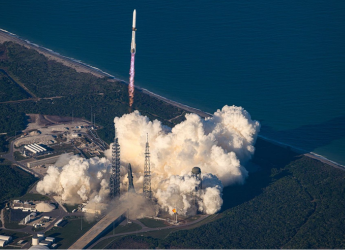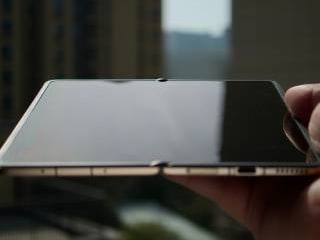- Home
- Laptops
- Laptops News
- Microsoft Making It Mandatory for Windows PC Makers to Switch to All SSDs by 2023: Report
Microsoft Making It Mandatory for Windows PC Makers to Switch to All SSDs by 2023: Report
The original plan was said to move to SSDs from HDDs this year.

Most manufacturers nowadays already have Windows laptops with SSD boot drives
Microsoft is planning to make it mandatory for PC makers to switch from hard disk drives (HDDs) to solid state drives (SSDs) for their Windows 11 PCs coming in 2023, according to a report. The reported move by the software giant is expected to result in an increase in the prices of PCs as manufacturers would need to spend more on picking SSDs in replacement of traditional spinning hard drives. However, the switch could help users get performance enhancements. A large number of Windows laptops nowadays already have SSDs for booting and HDDs for bulk storage.
Citing an executive brief from data storage industry analyst firm Trendfocus, Tom's Hardware reports that Microsoft is pushing PC makers to drop HDDs as the primary storage on their Windows 11 PCs and instead switch to SSDs.
The exact date for the shift is yet to be revealed. However, Trendfocus analyst John Chen told the website that Microsoft was originally planning to make it a requirement this year, though it had now been pushed out to sometime in the second half of next year.
Manufacturers are said to be negotiating with Microsoft on the move, though Chen said that "things are still in flux."
It is important to note that the current list of hardware requirements for Windows 11 does not specifically include SSD as a mandatory component to install the operating system. It says 64GB storage as the minimum requirement to install the latest Windows version. However, Microsoft points out that to get DirectStorage and the Windows Subsystem for Android, users need an SSD.
All the leading PC makers including HP, Dell, Lenovo, and Acer have a large number of Windows laptops that carry SSD boot drives — alongside HDD for storing regular data. But at the same time, there are affordable models that have HDDs as the only storage options. Some models even have eMMC storage to help manufacturers sell options on a tight budget.
Switching to SSDs over HDDs adds some additional cost that PC makers are likely to transfer to customers by rising prices of their laptops to some extent.
In the current market, a 1TB HDD is priced close to that of a regular 256GB SSD. This means that if a PC maker needs to shift from an HDD to SSD for its laptop, users would get lower storage space. Alternatively, the cost of making that particular laptop model needs to be increased to match the storage space of its HDD version.
Although SSDs are costly options over HDDs, the operating cost of an SSD is lower than an HDD in the long run as the former requires relatively less power and cooling. It also helps deliver faster read/ write speeds over a traditional rotational drive.
"HDD and SSD will be maintaining a synergy with HDD's strength in the economic value in terms of cost per unit, while SSD balances the intrinsic performance capability, both which carve out a significant role in the overall data storage landscape," said Sameer Bhatia, Director of Asia Pacific Consumer Business Group, and Country Manager for India & SAARC, Seagate.
The executive added that hard drives provided that economic value for the bulk of the data store that are stored in the in the data centre, and SSDs complemented the performance to access that data through data tearing and data caching.
Microsoft arch-rival Apple already has its MacBook and Mac range of computers with all SSDs for the last several years.
As Ars Technica notes, it is quite likely that the reported requirement would not initially limit users from installing Windows 11 on PCs and laptops that have HDDs even if PC makers would be restricted from selling computers with spinning drives.
Nevertheless, it is unclear whether Microsoft would make the requirement of SSDs mandatory for all laptops or limit it to a certain segment. It is also not clear whether the said move will be limited to some markets initially or applicable on a global basis.
Gadgets 360 reached out to Microsoft for a comment on the development, and a spokesperson said it had "nothing additional" to share to the comment quoted by Tom's Hardware. That comment, though, said the company "has nothing to share on this topic at this time."
Get your daily dose of tech news, reviews, and insights, in under 80 characters on Gadgets 360 Turbo. Connect with fellow tech lovers on our Forum. Follow us on X, Facebook, WhatsApp, Threads and Google News for instant updates. Catch all the action on our YouTube channel.
Related Stories
- Samsung Galaxy Unpacked 2026
- iPhone 17 Pro Max
- ChatGPT
- iOS 26
- Laptop Under 50000
- Smartwatch Under 10000
- Apple Vision Pro
- Oneplus 12
- OnePlus Nord CE 3 Lite 5G
- iPhone 13
- Xiaomi 14 Pro
- Oppo Find N3
- Tecno Spark Go (2023)
- Realme V30
- Best Phones Under 25000
- Samsung Galaxy S24 Series
- Cryptocurrency
- iQoo 12
- Samsung Galaxy S24 Ultra
- Giottus
- Samsung Galaxy Z Flip 5
- Apple 'Scary Fast'
- Housefull 5
- GoPro Hero 12 Black Review
- Invincible Season 2
- JioGlass
- HD Ready TV
- Latest Mobile Phones
- Compare Phones
- Samsung Galaxy S26+
- Samsung Galaxy S26 Ultra
- Samsung Galaxy S26
- iQOO 15R
- Realme P4 Lite
- Vivo V70
- Vivo V70 Elite
- Google Pixel 10a
- Asus TUF Gaming A14 (2026)
- Asus ProArt GoPro Edition
- Huawei MatePad Mini
- Infinix Xpad 30E
- Huawei Watch GT Runner 2
- Amazfit Active 3 Premium
- Xiaomi QLED TV X Pro 75
- Haier H5E Series
- Asus ROG Ally
- Nintendo Switch Lite
- Haier 1.6 Ton 5 Star Inverter Split AC (HSU19G-MZAID5BN-INV)
- Haier 1.6 Ton 5 Star Inverter Split AC (HSU19G-MZAIM5BN-INV)

















